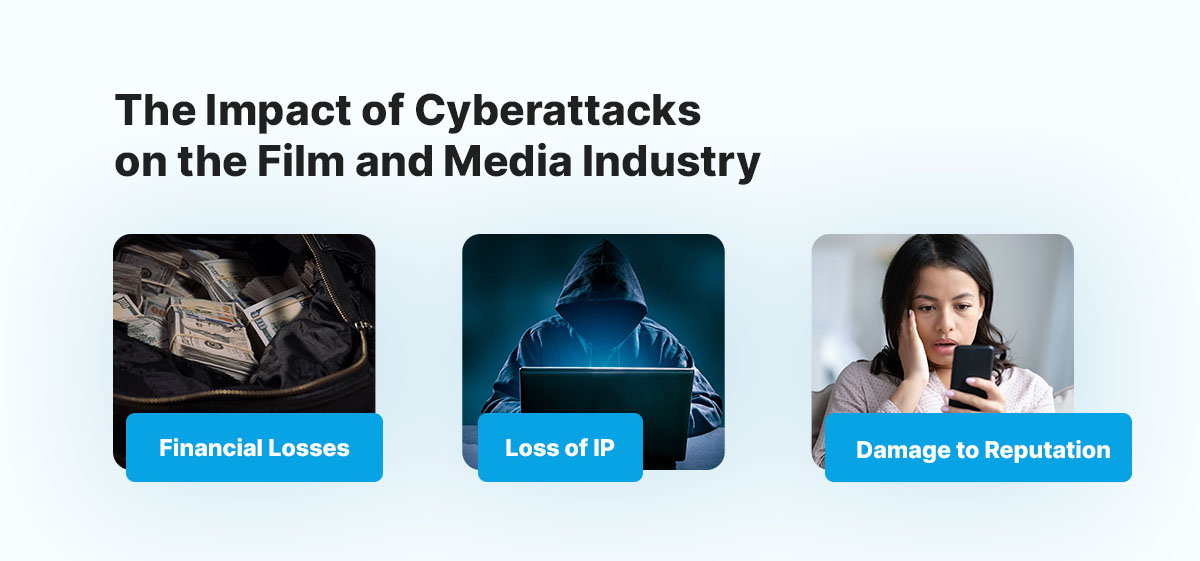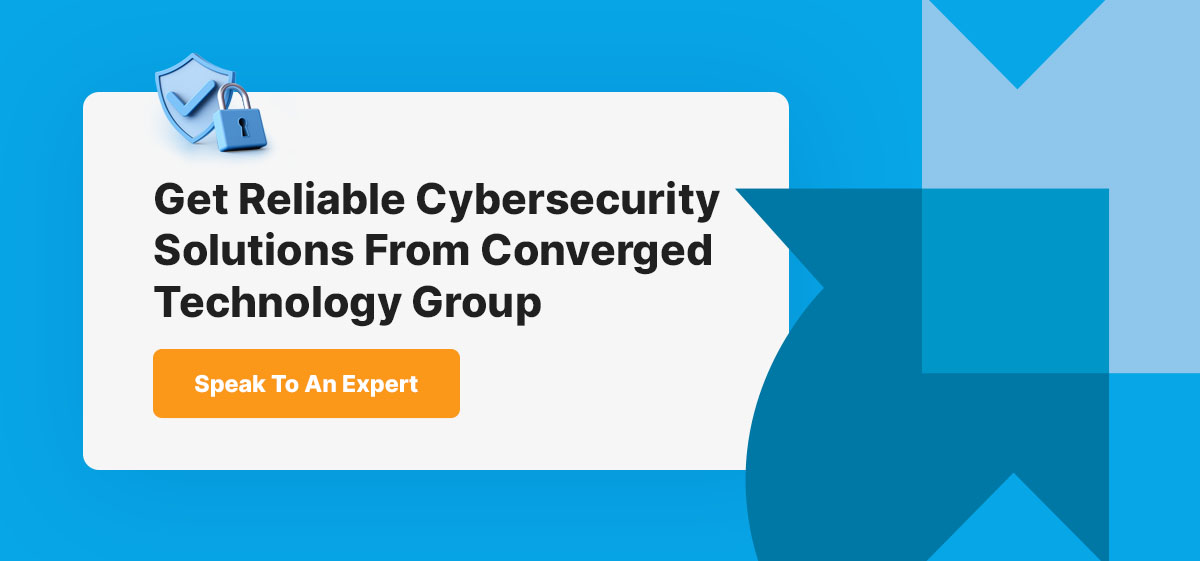Cybersecurity in the Entertainment Industry
The media and entertainment industries have undergone tremendous changes over the last decades. These changes and innovations are mostly informed by the need to adapt to new technologies to meet the modern consumer’s demands. Think of the shift from selling music and movie tapes to online streaming. While these shifts have enabled media and entertainment companies to scale their businesses, these new opportunities come with serious threats. The most significant risk is cyberattacks. Cybersecurity in media is as crucial as producing content.

Cyber Risks in the Entertainment Industry
From mega movie-making budgets to copyrighted content, the entertainment industry presents opportunities that make it attractive to malicious hackers. This sector includes radio broadcasters, newspapers, TV and film production companies, books and magazines, and online publishers. Here are some of the major cyber risks in this industry.
Ransomware and Malware
Malware and ransomware are major threats in the media and entertainment industries since they have a huge online presence. Ransomware attacks typically target a company’s files. They encrypt the files and demand payment to decrypt them. Malware attacks can damage systems or delete sensitive data.
Movie Pirating
This cyber risk is unique to the film and media industry. The target of the attacks is unreleased content. Once hackers gain access to the content, they can distribute the movies or TV episodes, either for free or for money. In either case, the media production companies experience losses after spending huge budgets on producing the movies.
One example is the 2017 data breaches at HBO, which led to the leaking of many unreleased episodes. During this attack, some episodes of Game of Thrones were leaked and distributed.
However, these attacks are not always from external forces — insiders sometimes leak unreleased movies and TV shows. This means that cybersecurity in the film and media industry is both an internal and external problem.
Cyberattacks on Remote Workers
The media and film industries employ many remote workers. Through their devices, these employees can access company systems, data, contacts and other business assets that attackers deem valuable. Some of these personal devices are unvetted, making them easy targets for cyberattacks.
Social Engineering and Phishing Attacks
Phishing attacks target individuals who have access to sensitive or valuable data. The attacker will send an email that appears to be from a trusted source. Often, these emails prompt the recipient to download files that contain malware or click on a link. These are examples of how hackers exploit the internal weaknesses of organizations to penetrate their systems.
Social Media Breaches
Social media has become so powerful that it has taken over the role of traditional media in disseminating information. Real-time breaking news on platforms like X has rendered traditional newspapers almost obsolete.
You don’t have to wait for your local newspaper to print the latest edition to get up-to-date news. However, the same social media platforms have been used to spread fake news and misinformation. If a hacker successfully gains access to a Facebook or X account of a popular and established entertainment company, they can spread damaging or inappropriate content on the platforms. Misinformation and offensive content is a significant risk to the reputation of the affected media company.
Other Attack Types
Additional cybersecurity risks that the media and entertainment industry face include:
- Distributed denial-of-service: Also known as a DDOS attack, this attack aims to disrupt subscriber experience and prevent your company from distributing content.
- Altering access rights and security settings: Changing access settings compromises conditional access.
- Human error: In addition to falling for phishing emails, employees may also use weak passwords.
- Insider threats: These threats mostly come from malicious employees.
- Third-party and supply chain risks: Third-party vendors and disruptions in supply chains can lead to serious cyber threats.
The Impact of Cyberattacks on the Film and Media Industry
Except for ethical hackers, most cyberattacks have ill intentions. As in any other industry, cyberattacks in the entertainment industry can lead to financial losses, damage to reputation and loss of trust.

Financial Losses
Financial losses mainly occur in the form of ransom payments. Businesses often pay large amounts of money to regain access to important files that are key to the release of long-awaited movies, TV shows or other content. Furthermore, media companies may also face legal and regulatory penalties.
Loss of Intellectual Property
Cyberattacks can lead to theft of intellectual property (IP). The attackers can sell your IP to the highest bidder, including your competitors.
Damage to Reputation
Reputation damage mostly occurs when the employee or customer data is compromised. Cyberattacks can lead to your partners or clients losing trust in your business. People may hesitate to work with an organization that has suffered a cyberattack.
Some of these consequences can last for years, so you should employ effective cybersecurity measures to prevent attacks.
Security Solutions for the Entertainment Industry
As a business owner, IT manager or CEO of a media company, you must ensure that your systems and employees are safe from cyberattacks. The following solutions can help you safeguard your company from cyberattacks:
- Regularly update software and hardware: Company system hardware and software should be updated periodically. Often, software updates include security patches that address vulnerabilities.
- Use multi-factor authentication: MFA helps prevent unauthorized access to sensitive data, applications and systems.
- Increase employee training and awareness: Train employees to spot and respond to cyber threats. Some areas to focus on include phishing attacks, social engineering, strong passwords and ensuring non-authorized people do not access their devices.
- Test your system regularly: Identify vulnerabilities in your systems before attackers do. Testing allows you to seal any holes and make it impossible for external forces to access your systems.
- Use managed detection and response (MDR) services: Partner with an MDR provider like Converged Technology Group to gain 24/7/365 protection for your critical business data. MDR services rapidly detect and limit the impact of cyber threats by performing threat hunting, monitoring and response.
Get Reliable Cybersecurity Solutions From Converged Technology Group
As hackers continue to be innovative in how they attack media companies, decision-makers in this industry must constantly be on the lookout for the latest and most effective cybersecurity solutions. The best way to do this is to partner with a reliable IT security solutions provider that is always ahead of the game. At Converged Technology Group, we provide technology support for businesses in the media industry. Contact us for more information on how we can keep your systems secure.


